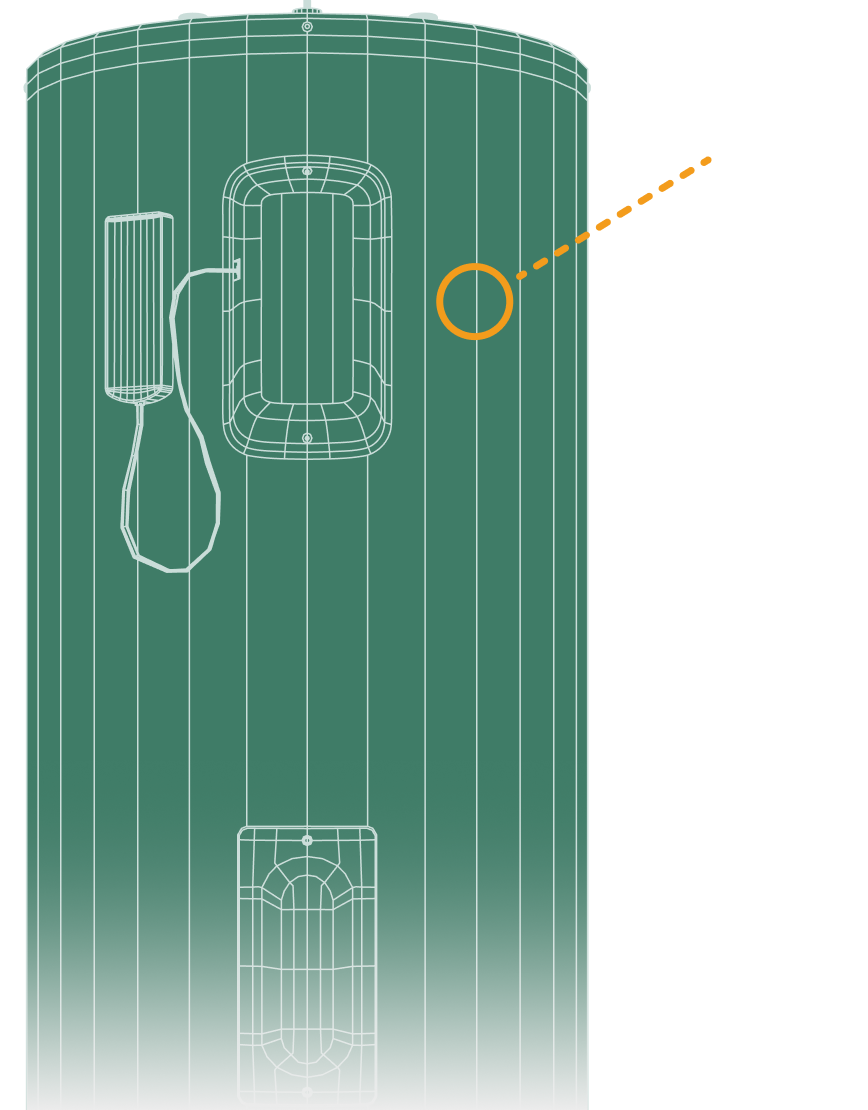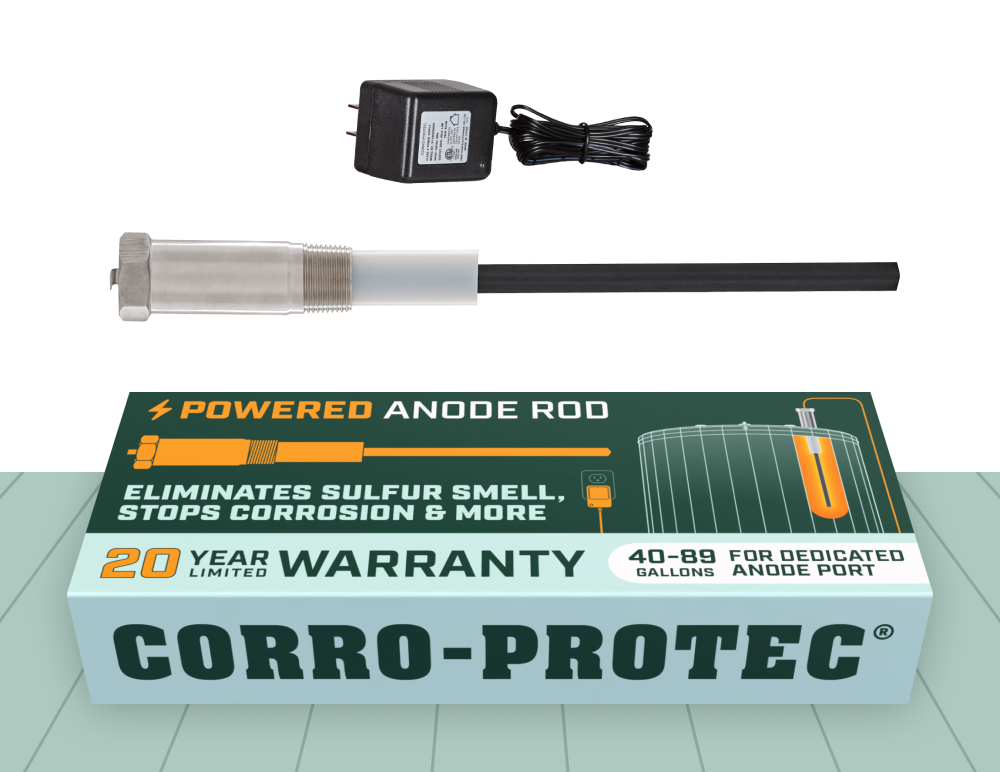Water Smells Like Rotten Eggs: Understanding Hydrogen Sulfide in Water

Does your water smell like rotten eggs? This foul odor, caused by hydrogen sulfide gas (H₂S), is common in wells and hot water tanks. Left unaddressed, it can lead to unpleasant experiences and potential safety risks. Learn everything you need to know about hydrogen sulfide in water, its effects, and how to resolve the problem effectively.
What Causes Hydrogen Sulfide in Water?
Hydrogen sulfide gas produces the unmistakable “rotten egg” smell often found in well water. It originates from several sources :
- Natural Decay Processes: Organic matter breaking down in soil and rocks can release hydrogen sulfide.
- Sulfur Bacteria: These bacteria thrive in low-oxygen environments, such as deep wells, plumbing systems, or water heaters, and produce hydrogen sulfide as a byproduct.
- Water Heaters: Magnesium anodes used in some heaters can interact with sulfur bacteria, making your water smell like rotten eggs.
While it’s rare, pollution can occasionally introduce hydrogen sulfide into groundwater.
Impacts of Hydrogen Sulfide and Sulfur Bacteria
Plumbing and Well Clogging
Sulfur bacteria produce slimy deposits that can accumulate in pipes, wells, and water distribution systems. This slime can also promote the growth of other bacteria, such as iron bacteria, leading to additional clogs.
Corrosion of Metal Components
Hydrogen sulfide is corrosive and can damage plumbing fixtures, water heaters, and pipes over time. This corrosion often appears as black stains on silverware or metal fixtures.
Potential Health Risks
While sulfur bacteria are not harmful, high concentrations of hydrogen sulfide gas can be dangerous if inhaled in confined spaces like well pits or basements.
How to Detect the Source of the Odor
Start by identifying whether the odor originates from your well, plumbing system, or water heater :
- Smell Test
After being away from home for a few hours, run the hot and cold water faucets separately. If only the hot water smells, the problem likely lies in your water heater. If both the hot and cold water smell, the issue may originate in the well or plumbing system. - Visual Signs
Black or grey stains on plumbing fixtures. Slime deposits in well or plumbing systems, often white, grey, black, or reddish-brown if combined with iron bacteria. - Water Testing
It is crucial to test your well water for hydrogen sulfide levels. Additionally, check for coliform bacteria and nitrates to ensure overall water safety.
Solutions for Addressing Rotten Egg Smell in Water
The best solution depends on the source of the problem.
If the Problem is in the Water Heater (Hot Water)
- Replace the Anode Rod : Magnesium anode rods can react with sulfur bacteria, increasing hydrogen sulfide levels. Replacing them with aluminum or powered anode rods can reduce the odor.
- Disinfect the Water Heater : Flush the water heater with a chlorine bleach solution to eliminate bacteria.
- Temperature Adjustment : Set the water heater temperature to 160°F (71°C) for several hours to kill sulfur bacteria. Ensure you follow safety precautions to prevent scalding.
If the Problem is in the Well or Plumbing System
- Shock Chlorination : Introduce a powerful chlorine solution into the well and plumbing system. This process disinfects and removes bacteria but may require professional assistance.
- Routine Maintenance : Regularly clean and maintain your well system to prevent bacterial buildup.
If the Problem is in the Groundwater
If hydrogen sulfide naturally occurs in your groundwater, consider these long-term solutions :
- Activated Carbon Filters: These filters remove odors during water flow and are effective for low hydrogen sulfide levels.
- Oxidizing Filtration Systems: These systems use manganese dioxide to convert hydrogen sulfide into harmless particles that are filtered out.
- Aeration Systems: Introduce air into water to release hydrogen sulfide gas, followed by filtration.
- Continuous Chlorination: For persistent issues, continuous chlorination can maintain water safety and reduce odors.
- Contact a Water Treatment Specialist: If you can not solve the odor issues yourself, consider hiring a professional and following their recommendations.
Additional Testing Recommendations
Even with the rotten egg smell gone, routine testing is crucial for maintaining the safety of your water :
- Test for coliform bacteria, nitrate, arsenic, lead, and manganese.
- Consider testing for volatile organic chemicals, pesticides, and fluoride depending on local conditions.
Take Action
The smell of rotten eggs in water, often caused by hydrogen sulfide gas or sulfur bacteria, can be unpleasant and damaging if left untreated. By identifying the source and implementing the appropriate solution—maintaining your water heater, disinfecting your well, or installing a powered anode rod—you can ensure safe, odor-free water for your home.
Regular maintenance and testing are important for preventing issues and protecting your home’s water. If you’re unsure where to start, consult a water treatment professional to address the problem effectively.
Water Smells Like Rotten Eggs FAQs
If your water smells like rotten eggs, identify the source by checking both hot and cold water taps individually. For hot water, the issue is often in the water heater and can be resolved by replacing the anode rod or disinfecting the tank. Shock chlorination or water treatment systems may be necessary for well or plumbing issues.
If your water smells like rotten eggs, identify the source by checking both hot and cold water taps individually. For hot water, the issue is often in the water heater and can be resolved by replacing the anode rod or disinfecting the tank. Shock chlorination or water treatment systems may be necessary for well or plumbing issues.
This indicates sulfur bacteria or hydrogen sulfide in the plumbing or water supply. Flushing pipes with chlorine or cleaning out the drain can address bacterial growth. If the odor persists, test the water to identify the source and treat it accordingly.
While the smell itself isn’t harmful, testing for contaminants like coliform bacteria and nitrates is essential to ensure the water is safe. Hydrogen sulfide gas can corrode plumbing and may be dangerous if concentrated in confined spaces. Proper treatment and testing will ensure your water is safe to use.
The odor is caused by hydrogen sulfide gas, often resulting from natural decay, sulfur bacteria, or chemical reactions in water heaters. It can occur in groundwater or well systems due to low-oxygen environments. Addressing the specific source is crucial in eliminating the smell.
This article was written by Vincent Veilleux, Corro-Protec CEO and AMPP Tester on April 2019 and updated on September 2024.
Blog
Hot Water Temperature : Avoid Setting Your Water Too Hot
If your hot water temperature is set to 140 degrees Fahrenheit, it takes three seconds to burn your skin serious enough to require surgery. Three seconds isn’t long at all. […]

